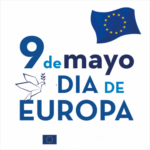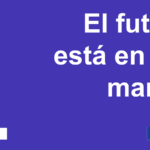The Commission today publishes its guidelines on how the Code of Best Practice on Disinformation, the first of its kind worldwide, should be strengthened with a view to increasing its effectiveness in the fight against disinformation.
These guidelines set out the Commission’s intentions, call for a stronger commitment from signatories and provide for greater participation in the Code. Building on a robust monitoring framework and clear performance indicators, signatories are to reduce economic incentives for disinformation, empower users to take an active role in combating the spread of disinformation, improve cooperation with data verifiers in all EU member states and languages, and provide researchers with a framework for access to data.
Věra Jourová, Vice President for Values and Transparency, said, “The threats posed by online disinformation are evolving rapidly and we need to step up our collective measures to empower citizens and protect the democratic information space. We need a new and strengthened Code because online platforms and other participants need to address the systemic risks of their services and their algorithmic expansion, stop policing themselves on their own, and stop allowing disinformation to generate revenue, while fully ensuring freedom of expression.”
A strong, stable and flexible Code to support the fight against disinformation.
The guidelines call for strengthening the Code through improvement in the following areas:
- Increased participation with tailored commitments. The Commission encourages adherence to the Code by established and emerging platforms active in the EU, relevant stakeholders in the online advertising ecosystem (such as ad exchanges, ad tech providers, brands that benefit from advertising), private messaging services and stakeholders who can contribute resources or expertise to the effective functioning of the Code. The strengthened Code should include new commitments tailored to correspond to the size and nature of the services provided by the signatories.
- Demonetize disinformation. Platforms and players in the online advertising ecosystem need to take responsibility and better collaborate to end the funding of disinformation, especially by sharing information on disinformation advertising rejected by one of the signatories, increasing transparency and accountability regarding ad placements, and preventing the involvement of players that systematically publish disinformation content.
- Ensuring the integrity of services. The strengthened Code should provide comprehensive coverage of existing and emerging manipulative behaviors used to spread disinformation (such as bots, fake accounts, organized manipulative campaigns or account theft), as well as include tailored commitments to ensure transparency and accountability for actions taken to reduce their impact.
- Empower users to understand and report disinformation. Users need access to tools that enable them to better understand the online environment and navigate it safely. Signatories need to make their recommender systems, i.e. how users perceive content, transparent, and take measures to reduce the risks they generate, such as the viral spread of misinformation. They must also provide their users with accessible and effective tools and procedures for reporting disinformation that could cause public or personal harm. Users whose content or accounts are affected by actions taken in response to such complaints must have access to an adequate and transparent mechanism to enable them to seek recourse and redress. The strengthened Code should also improve the visibility of reliable information of general interest and alert users who have interacted with content detected as false by fact-checkers.
- Increase the coverage of fact-checking and data access provided to researchers. The new Code should provide for better cooperation with data verifiers and increase its coverage across EU countries and languages. The strengthened Code also needs to include a robust data access framework for researchers.
- A robust monitoring framework. The strengthened Code should include an enhanced monitoring framework based on key performance indicators that measure the results and impact of the actions taken by the platforms, as well as the overall EU-wide impact of the Code on disinformation. Platforms should submit regular reports to the Commission on the measures taken and relevant key performance indicators. Platforms should submit information and data in standardized formats and disaggregate the information by Member State.
Finally, signatories should establish a Transparency Center indicating the policies they have adopted to implement the Code’s commitments, their mode of implementation and all relevant data and metrics with respect to key performance indicators. The guidelines also propose the establishment of a permanent working group chaired by the Commission. Such a group would be composed of the signatories and representatives of the European External Action Service, the European Regulators Group for Audiovisual Media Services and the European Digital Media Observatory. The latter received more than 11 million euros to create 8 regional centers to help it carry out and expand its work in the Member States. This working group, which will also be assisted by experts, will help to evaluate and adapt the Code in view of technological, social, legislative and market changes.
Next Steps
The Commission will ask the signatories of the Code of Good Practice to meet and strengthen the Code according to the guidelines. It also encourages new signatories to join the Code. To this end, the Commission will contact potential new signatories and interested parties. Signatories should proceed rapidly with the revision of the Code and provide a first draft of a revised Code in the fall. As announced, the Commission will also propose legislation this year to increase the transparency of political advertising. The guidelines also call for stronger commitments in this area with a view to preparing the ground for the forthcoming strengthened legislative framework and devising industry-driven solutions to support it.
Context
The Code of Good Practice was established in October 2018. As announced in the European Democracy Action Plan, the guidelines address the shortcomings identified in the Commission’s 2020 Evaluation of the Code and builds on the learning from the COVID-19 disinformation monitoring program. The Commission’s proposal for the Digital Services Act establishes a co-regulatory protection mechanism for measures included in the revised and strengthened Code.
The coronavirus crisis has been a clear example of the threats and challenges that disinformation poses in our societies. The “infodemic” has posed significant risks to personal and public health systems, crisis management, the economy and society. It has shown that, despite the tremendous work done so far, there is a pressing need to intensify efforts in the fight against disinformation.
The EU’s approach to combating disinformation is firmly rooted in the protection of freedom of expression and the maintenance of open democratic debate. It aims to generate greater transparency and accountability in the online environment and to empower citizens. It is linked to the other objectives of the European Democracy Action Plan, namely the promotion of free and fair elections and the protection of media freedom and pluralism. The EU has mobilized industry, media, universities and public authorities and encourages greater participation in the Code.







Leave a Reply